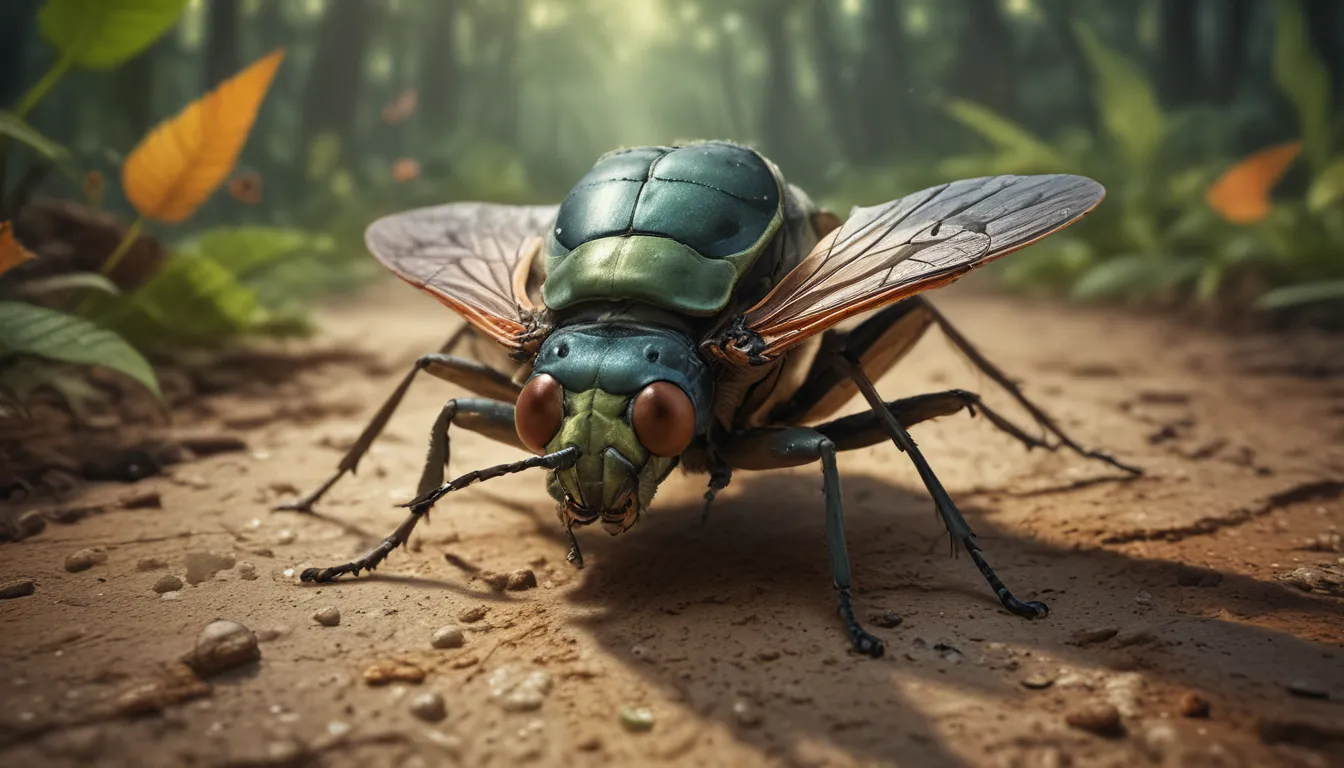The pictures we use in our articles might not show exactly what the words say. We choose these pictures to make you interested in reading more. The pictures work together with the words but don’t take their place. The words still tell you the important facts.
Insects, the most diverse group of animals on Earth, are a fascinating subject of study. With over a million known species and many more waiting to be discovered, these tiny creatures play vital roles in our ecosystem. From pollination to decomposition, insects are essential for maintaining the balance of nature. Let's delve into the intriguing world of insects and uncover 17 fascinating facts that will leave you in awe of these remarkable creatures.
Unveiling the World of Insects
Insects make up the largest group of animals on Earth, with over a million known species. From ants and bees to butterflies and beetles, these tiny creatures dominate the animal kingdom in terms of numbers.
A Glimpse into History
Insects have been around for millions of years, evolving and adapting to various environments. Surviving multiple mass extinctions, they are one of the most successful groups of organisms on the planet.
The Navigation Skills of Bees
Bees exhibit impressive navigation skills, using landmarks, the sun, and the Earth's magnetic field to find their way back to their hive accurately.
The Defense Mechanism of the Bombardier Beetle
The bombardier beetle possesses a unique defense mechanism, spraying a hot and toxic chemical liquid from its abdomen when threatened, deterring predators.
The Crucial Role of Insects in Pollination
Bees, butterflies, and other insects play a vital role in pollinating flowers and crops, enabling the production of fruits, vegetables, and seeds.
The Diverse Lifespan of Insects
The lifespan of insects varies greatly, with some living for only a few hours or days, while others can survive for months or even years. For example, the queen termite can live up to 50 years.
Dragonflies: A Hunter’s Prowess
Dragonflies are exceptional predators, with the ability to catch and consume hundreds of mosquitoes and other insects in a day, helping to control their populations.
The Complex Social Structure of Honeybees
Honeybees live in highly organized colonies with specific roles for each bee, including queen, worker bees, and drones, working together for the survival of the hive.
Evolution of Defense Mechanisms in Insects
From camouflage to mimicry, insects have evolved various defense mechanisms to protect themselves from predators, showcasing their incredible adaptability.
Survival in Extreme Environments
Some insects, like the Antarctic midge, can withstand freezing temperatures and harsh conditions through special adaptations, surviving in some of the harshest environments on Earth.
The Transformative Journey of Butterflies
Butterflies undergo a complete metamorphosis, transitioning from an egg to a caterpillar and pupa before emerging as a colorful butterfly, a process that showcases the marvels of nature.
Strength in Small Packages: The Power of Ants
Ants can carry objects many times their body weight, demonstrating incredible strength relative to their size.
Illuminating the Night: Bioluminescent Insects
Fireflies and glowworms have the ability to produce light through bioluminescence, using it to attract mates or prey.
Nature’s Recyclers: Insects in Decomposition
Beetles and maggots play a crucial role in breaking down dead plant and animal matter, aiding in the decomposition process and nutrient recycling.
Communication Among Insects
Insects have intricate communication systems, utilizing pheromones, sounds, and visual displays to interact with others of their kind.
Contributions to Scientific Advancements
Scientists have studied insects to gain insights into genetics, behavior, and physiology, leading to important discoveries and innovations in various fields.
Benefits of Insects to Humans
Apart from their ecological roles, insects provide crucial services to humans, including pest control, honey and silk production, and pollination of crops essential for food production.
In conclusion, insects are truly remarkable creatures that contribute significantly to the balance and health of our ecosystem. Their diversity, unique adaptations, and essential roles make them a subject of fascination for scientists and nature enthusiasts worldwide. The next time you encounter an insect, take a moment to appreciate the intricate world they inhabit and the vital roles they play in maintaining our planet's delicate balance.
FAQs
Q: Why are insects important in nature?
A: Insects play crucial roles in pollination, decomposition, and as a food source for other animals, contributing to the balance of ecosystems.
Q: How many species of insects are there?
A: It is estimated that there are around 900,000 known insect species, with potentially millions more yet to be discovered.
Q: Can insects communicate with each other?
A: Yes, insects have various communication methods, including pheromones, sounds, vibrations, and visual displays.
Q: How long do insects live?
A: The lifespan of insects varies by species, with some living for a few days and others for several years.
Explore the fascinating world of insects and marvel at their intricate qualities and important ecological roles. These small creatures are a testament to the wonders of nature, reminding us of the delicate balance that exists in our natural world.






